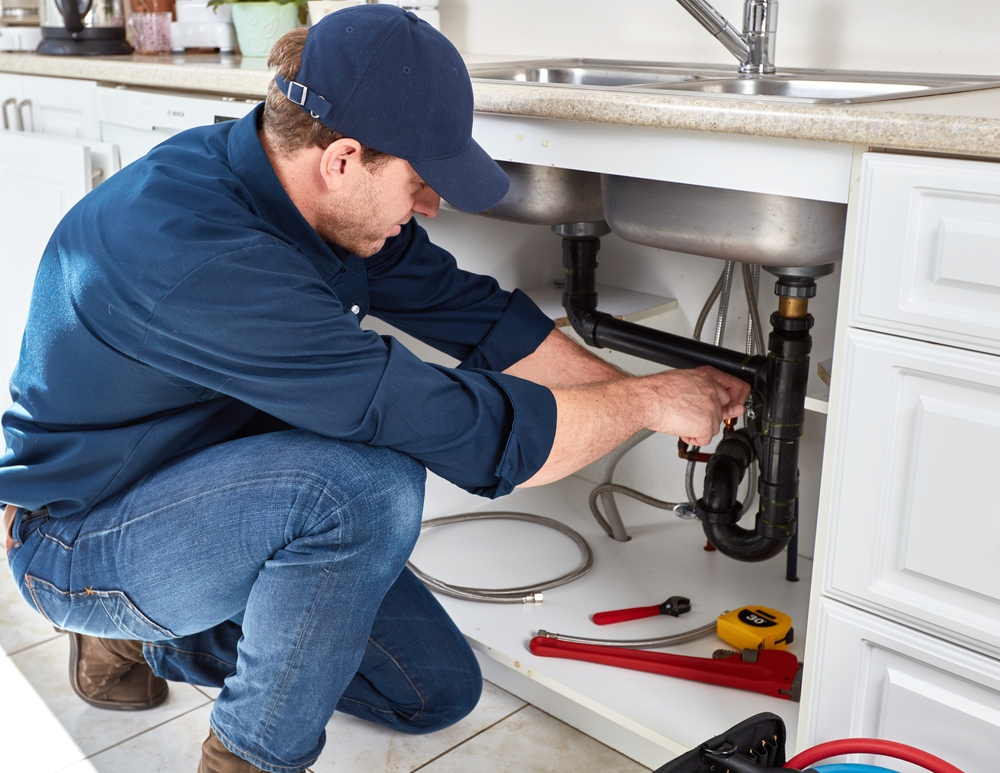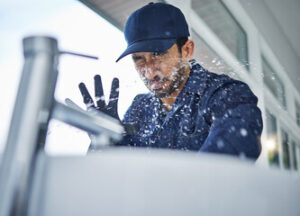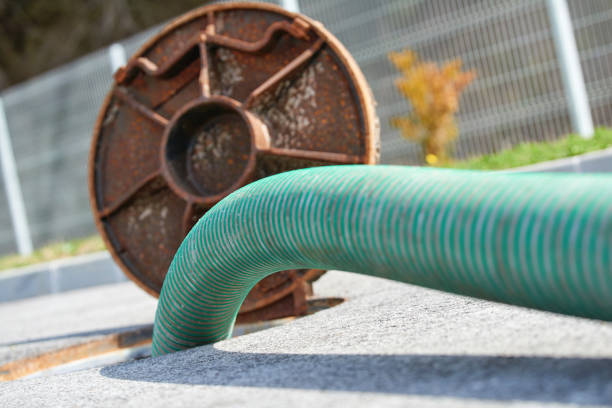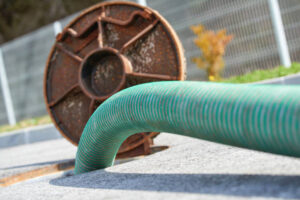Emergency Plumber Aurora CO can strike when least expected and cause severe damage if not dealt with promptly. However, determining when an issue is truly an emergency requires knowing your home and its components well.
Knowing where your home’s shut-off valves are and how to operate them can help minimize water damage until a plumber arrives.

Burst pipes can be very frustrating for homeowners. They often lead to costly damage, ruin precious items, and leave walls and floors stained. Although some factors, like hard water and bad soldering, contribute to pipe bursts, most are preventable with proper maintenance. Having a plumbing plan from HomeServe can also help protect against unexpected problems.
Most homeowners know when a pipe bursts, thanks to puddles of water that form around the burst area. They may also notice a sudden drop in water pressure, especially if the break is located close to a water meter or water main. Other indicators include discolored water that smells rotten, and metallic clangs that occur when water moves through the broken pipe.
When a pipe bursts, it’s crucial to take immediate action to minimize water damage. Homeowners should start by turning off the water at the main. They should also move furniture and other valuables away from the area, clean up any water that is already there, and make sure to turn off any electrical appliances near the leak.
After a burst pipe, homeowners can use a repair sleeve to temporarily mend the leak. A sleeve slides over the broken part of the pipe and prevents further leaks until a plumber can come to fix it. The sleeve isn’t a permanent solution, however, so it’s important to call a plumber as soon as possible.
If a plumber isn’t available immediately, a DIY solution involves using a rubber patch, a piece of wood, and a clamp to seal the leak. Put the patch over the break, then add the wood block and clamp it together. This will hold the broken pipe in place until a plumber arrives to install a permanent solution.
To avoid pipe bursts in the future, it’s important to keep water as warm as possible during cold weather. A good way to do this is by installing insulation throughout the house. It’s also a good idea to open up closet and pantry doors while you’re at home so that warm air can circulate into these areas.
Gas leaks are extremely dangerous and can pose a threat to your health. If you smell natural gas in your home, turn off all your appliances and open windows, then call an emergency plumber. You should also evacuate the area and warn others because a single spark can ignite the leaking gas into an explosion or fire.
A gas leak pollutes indoor air and is harmful to both people and pets. When inhaled, it can cause symptoms like nausea, headache, fatigue, dizziness and loss of consciousness. Inhaling high concentrations of it for extended periods can even be fatal. Leaks are usually caused by aging and worn-out copper and, in some cases, cast iron gas lines.
It’s important to check for a gas leak regularly, especially if you live in an older home. In the case of a leak, the pipe must be repaired as soon as possible to avoid further damage and to ensure safety. Some common signs of a leak include:
Leaks can also occur in underground piping outside the home. If you notice bubbles in standing water, such as puddles or mud pools, this could indicate that methane and other gasses are seeping from the ground and into the house. A foul odor, similar to rotten eggs or a faint skunk odor, is also a good indicator of a gas leak.
Aside from causing health issues for your family, a gas leak can be damaging to the underlying pipes and can cause corrosion. In addition, it can affect the environment as methane is a potent greenhouse gas that contributes to climate change.
Fortunately, a professional plumber can quickly locate and repair the leak to prevent further problems. It’s important to keep in mind that a gas line repair is a grade 1 emergency, meaning it poses an immediate danger and requires immediate attention. It’s also important to note that you should never use any electrical devices or lights in the area where a gas leak is located, because it can ignite the escaping gas and cause an explosion. Also, don’t smoke or light any matches or candles, as these can also spark a fire.
No hot water is a frustrating and inconvenient problem that a variety of issues can cause. In some cases, it may be an emergency that requires the attention of a plumber right away. Luckily, there are some things you can try before calling for help.
One of the most important things you can do is to turn off your water. This is usually done by finding the shut-off valve for the affected fixture (which is usually located under your sink or behind a toilet) or the main water valve for your home. This will stop the flow of water to your plumbing system until you can get it fixed.
Another thing you can do is to try using a portable hot water heater. These can be purchased at most hardware stores and are a great way to get hot water while waiting for an emergency plumber. It is also a good idea to keep a bucket or jug nearby to catch the dripping water.
You can check online for reviews of local emergency plumbers. This can give you a good idea of the quality of work that they offer and whether or not they are worth hiring. Once you have found a few potential plumbers, it is a good idea to contact them and see what their prices are for plumbing services.
It is important to understand what constitutes a plumbing emergency so that you can decide when to call an emergency plumber and when it is okay to wait until normal business hours. By following these tips, you can ensure that your plumbing emergencies are addressed as quickly and efficiently as possible.
Whether it’s a clogged drain, leaking pipe or burst water heater, there are many reasons why you might need to call an emergency plumber. It is essential to stay calm and ask a few key questions in order to assess the situation properly. These will help you find a qualified emergency plumber to address your needs as soon as possible.
Clogged drains are a homeowner’s worst nightmare. From standing ankle-deep in sewage water while taking a shower to finding your sink full of stinky, dirty dishwater, a clogged drain can cause major problems for your home. It is important to be able to recognize early signs of drain clogs so you can call in professional help before the problem gets worse.
Most drain clogs happen over time as hair, soap scum, and other waste build up in your pipes. When a clog becomes too severe, it can prevent water from flowing properly through your pipes, into your toilets, and out of your home. This can lead to overflowing toilets, backed up showers, and other plumbing issues. Emergency plumbers are available to clean out your drains and pipes to fix these problems quickly and efficiently.
If you suspect a clog, it is important to turn off your water supply before calling in an emergency plumber. This can prevent further overflows and water damage while you wait for a professional to arrive. You can find your water main, usually located near the water meter or in a corner of your house, and shut it off completely. You should also shut off any running appliances like your dishwasher or washing machine to prevent them from adding more water to the clogged pipe.
The most common causes of clogged drains are food waste, hair, and other foreign objects. Food waste can include anything from coffee grounds to eggshells, and it can easily build up in your pipes if not removed regularly. Hair is another common cause of clogged drains, both from humans and pets. When mixed with soap scum and other residue, this can create a sticky residue that blocks your pipes. Finally, foreign objects such as cotton swabs, children’s toys, and other items can get stuck in your pipes and create serious blockages.
Fortunately, most clogs can be prevented with regular maintenance and proper care of your drains. It is also important to understand that drains are interconnected, so a clog in one pipe can affect other drains throughout your home.



